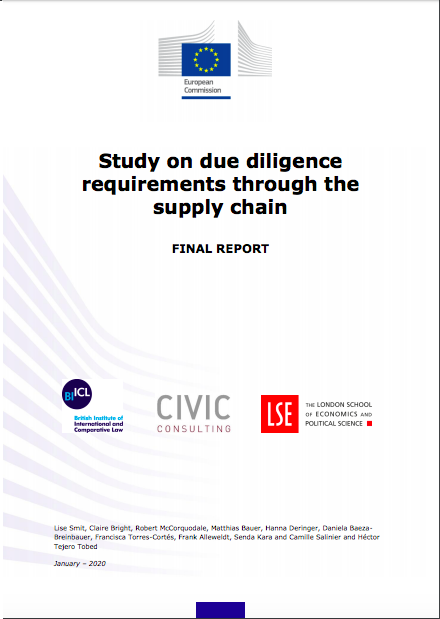This study for the European Commission focuses on due diligence requirements to identify, prevent, mitigate and account for abuses of human rights, including the rights of the child and fundamental freedoms, serious bodily injury or health risks, environmental damage, including with respect to climate.
It was conducted by the British Institute of International and Comparative Law (lead), Civic Consulting and LSE Consulting. Through desk research, country analyses, interviews and surveys it identifies Market Practices (Task 1) and perceptions regarding regulatory options.
The Regulatory Review (Task 2), including twelve Country Reports, shows that UN Guiding Principles on Business and Human Rights’ standard of due diligence is increasingly being introduced into legal standards or proposed in Member States.
The Problem Analysis, policy background and intervention logic concludes with the definition of four options for regulatory proposals (Task 3): No change (Option 1), new voluntary guidelines (Option 2), new reporting requirements (Option 3) and mandatory due diligence as a legal standard of care (Option 4). Option 4 includes sub-options limited to sector and company size, and enforcement through state-based oversight or judicial / non-judicial remedies.
The assessment of impacts of regulatory options (Task 4) considers economic impacts, impacts on public authorities, social, human rights and environmental impacts.

